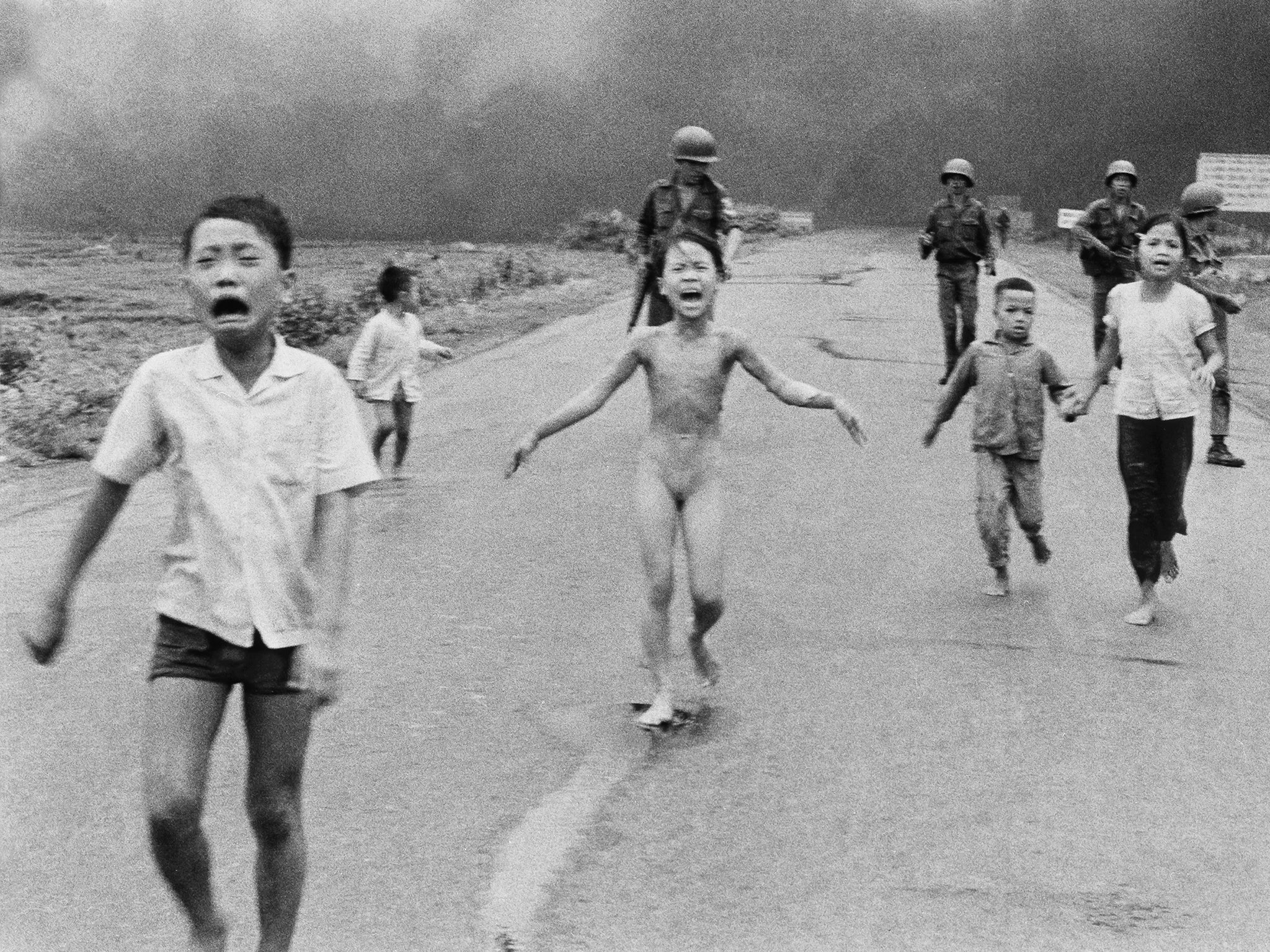Facebook removes Norwegian Prime Minister's post after she wades into 'napalm girl' row
But the Prime Minister is trolling the social media giant back

The Norweigan Prime Minister took on Facebook’s decision to delete an iconic image from the Vietnam war by sharing the image herself, before swiftly finding her post had been taken down as well.
On Friday, the country’s largest newspaper, Aftenposten, led with a front-page open letter by its editor Espen Egil Hansen who accused Mark Zuckerberg of “abusing power” by censoring the post. The letter came after the daily paper published a story leading with the 1972 Pulitzer-prize winning photo of nine-year-old Kim Phuc running terrified after being hit with napalm in the Vietnam war.
The post was deleted by Facebook under its nudity guidelines. In response, Facebook defended their actions saying, “it’s difficult to create a distinction between allowing a photograph of a nude child in one instance and not others”.
The Prime Minister Erna Solberg expressed support for the newspaper and shared the image on her Facebook account. The social media giant responded by taking down the post, according to one of her aides.
“What they do by removing images of this kind, whatever [the] good intentions, is to edit our common history,” Ms Solberg told a Norweigan news agency.
Ms Solberg has now responded by sharing the image again, but this time with a black censorship box. She also effectively trolled Facebook by sharing other historic images such as Martin Luther King’s “I Have a Dream speech” and the protester standing in front of Chinese tanks at the 1989 Tiananmen square protests by censoring their faces.
On Friday, Mr Hansan told the Independent he had not heard from Facebook since his letter but hopes he has started a discussion. He also dismissed Facebook's "technocratic" suggestion they can not differentiate between images of two children, saying: "This is not a naked child, it's a victim of an attack".
"It was most important to me to start a discussion. I'm actually really pleased because I hope to raise this discussion in Norway but it is taking place globally.
"I think that it is my role as an editor and journalist to bring up something that was not, maybe, pleasant for everyone but has started a discussion."
If Facebook had existed in 1972, he added, we probably would never have seen the powerful image.
“And they wouldn’t have posted pictures from the Holocaust because there are naked children there on the way to the gas chambers. They would have been unpleasant pictures and it wouldn’t have been possible to publish them there.”
Additional reporting by the Associated Press.
Join our commenting forum
Join thought-provoking conversations, follow other Independent readers and see their replies
Comments